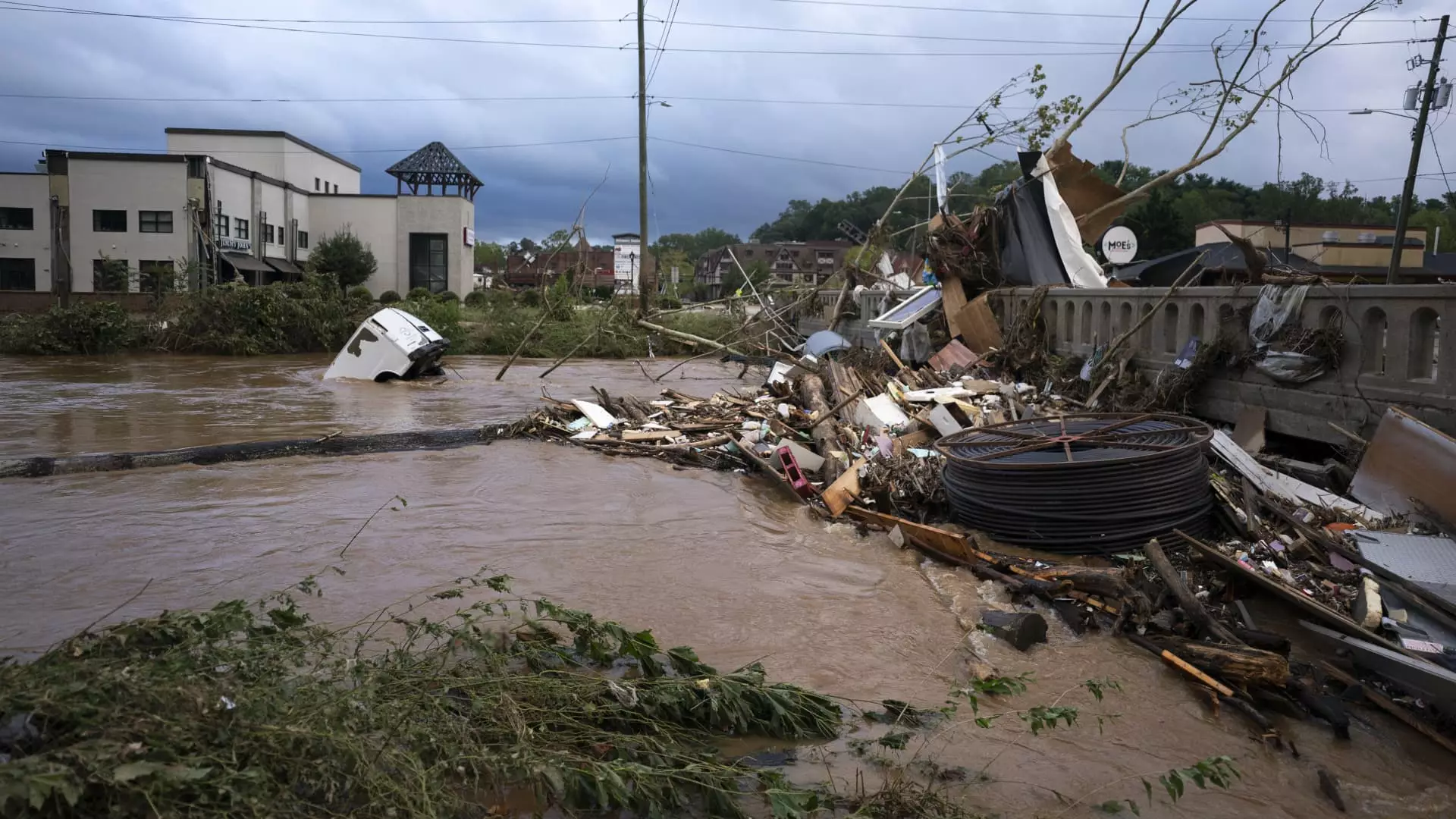Hurricane Helene has left a trail of destruction in several states, prompting urgent warnings from officials about the potential rise of scams targeting vulnerable populations in the storm’s wake. With the pressure of recovery hanging heavily, people who have been affected by the hurricane find themselves at risk of exploitation by unscrupulous individuals looking to capitalize on their misfortune. Among various schemes, price gouging emerges as a significant concern, alongside a range of other fraudulent activities.
Price gouging typically occurs when merchants artificially inflate the prices of essential goods and services during emergencies, taking advantage of increased demand. Following Hurricane Helene, Attorney General Josh Stein of North Carolina reported a surge in complaints, indicating a worrying trend. Over 100 allegations of price gouging related to essential items such as fuel, groceries, and hotel accommodations have surfaced. Stein emphasized that while most retailers strive to assist their communities, a few opportunists exploit the desperation of others for financial gain.
The legislative landscape regarding price gouging varies significantly across the United States. While 37 states enforce anti-price gouging laws designed to protect consumers during emergencies, some states lack such protections entirely. Critics argue that these laws, while well-intentioned, may inadvertently create market distortions that could centralize supply issues, as businesses may hesitate to provide products at fixed prices during times of crisis.
Consumers witnessing instances of price gouging are encouraged to address their concerns with the retailers directly. Advocates highlight the importance of documenting suspicious pricing, allowing individuals to report findings to their respective state attorneys general. By taking such proactive measures, consumers can aid in the enforcement of laws intended to combat unethical pricing practices.
While price gouging is a prominent issue, Hurricane Helene’s aftermath brings a slew of other deceptive practices. Reports predictively highlight risks associated with scams involving impersonation of organizations like the Federal Emergency Management Agency (FEMA) and insurance companies. Unscrupulous individuals may pose as FEMA representatives, soliciting sensitive personal information under false pretenses. Consequently, individuals are advised not to disclose financial details over the phone unless they have verified the identity of the caller.
In addition to these impersonation schemes, potential victims must be wary of dubious offers for home repairs, often presented in a door-to-door format. These scams may involve contractors demanding full payment upfront or proposing to cover insurance deductibles. People are reminded to contact their insurance providers for guidance prior to undertaking any repairs and to thoroughly vet any contractors considered for work.
Furthermore, auto buyers can find themselves ensnared in potential traps during the recovery phase. It is crucial to research the history of any vehicle, especially in areas known for flooding, to ensure that second-hand cars do not come with hidden damage. Utilizing resources such as the National Insurance Crime Bureau’s VINCheck and Carfax can provide critical insights into a car’s past.
As the community works towards recovery, many individuals feel a strong impulse to contribute through charitable donations. However, this emotional desire to help can lead to another form of exploitation: charity scams. Unscrupulous organizations tend to spring up during crises to take advantage of the generosity of well-meaning donors. To ensure that contributions reach legitimate organizations, potential donors can utilize platforms like Give.org and CharityNavigator.org to assess and verify the credibility of a charity.
In the wake of Hurricane Helene, the specter of financial exploitation looms large, necessitating vigilance among consumers. Across the landscape of recovery, it is essential to remain cautious of price gouging, fraudulent offers, and deceptive charitable solicitations. Individuals are urged to arm themselves with knowledge about consumer rights and available resources. Through heightened awareness and due diligence, victims can protect themselves from the opportunistic tactics of those looking to exploit the vulnerable in times of crisis. Ultimately, fostering a collective spirit of vigilance can help build resilience in the face of adversity, ensuring that every dollar aids in genuine recovery efforts rather than falling into the hands of fraudsters.

Leave a Reply